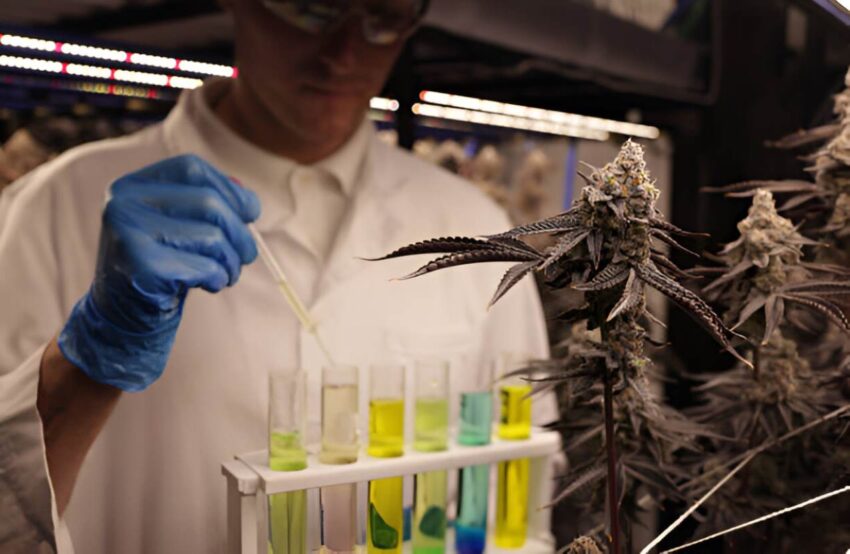The world of cannabis-derived compounds continues to fascinate health enthusiasts and researchers alike. CBD and THC stand at the forefront of natural wellness solutions, offering unique properties that challenge traditional medical approaches.
This comprehensive exploration will dive deep into the characteristics, potential benefits, and considerations surrounding these remarkable cannabinoids.
Botanical Basics
Cannabis plants are complex botanical wonders containing numerous compounds, but CBD and THC remain the most discussed. These cannabinoids interact with the human body’s endocannabinoid system in remarkably different ways. While they originate from the same plant, their effects and potential applications vary significantly.
Understanding Molecular Differences
CBD is non-psychoactive, meaning it doesn’t produce the intoxicating effects associated with cannabis consumption. THC, conversely, creates the characteristic “high” that many people associate with marijuana use. This fundamental difference drives their distinct applications in wellness and medical contexts.
Therapeutic Potential of CBD
Researchers and wellness practitioners have identified numerous potential benefits of CBD. The compound shows promise in managing stress, reducing inflammation, and supporting overall mental and physical well-being. Many users report improved sleep patterns and a sense of calm without experiencing any psychoactive effects.
THC: More Than Just a Recreational Compound
Beyond its recreational reputation, THC offers significant therapeutic potential. Medical applications include pain management, appetite stimulation, and potential relief for patients experiencing specific medical conditions. Some individuals find THC particularly effective for managing chronic pain and reducing muscle tension.
Intricate World of Pain Management
Both CBD and THC demonstrate potential in addressing pain-related issues. CBD may help reduce inflammation and interact with pain receptors, while THC provides more direct pain relief through its psychoactive properties. Many users find that a balanced approach yields the most comprehensive results.
Mental Health and Cannabinoid Interactions
CBD has gained significant attention for its potential in managing anxiety and mood disorders. Unlike THC, which can sometimes increase anxiety, CBD appears to promote a sense of relaxation and emotional balance. This makes it an intriguing option for individuals seeking natural mental health support.
Consumption Methods and Considerations
The market offers numerous ways to consume CBD and THC, including:
- Oils and tinctures
- Edible products
- Topical applications
- Inhalation methods
- Capsules and supplements
Navigating Legal and Regulatory Landscapes
Legal status remains a critical consideration for CBD and THC users. Hemp-derived CBD enjoys broader acceptance, while THC faces more stringent regulations. Users must carefully research local laws and potential workplace restrictions before incorporating these compounds into their wellness routine.
Entourage Effect: A Holistic Approach
Some researchers believe that cannabinoids work most effectively when consumed together. This synergistic interaction, known as the entourage effect, suggests that full-spectrum products might offer more comprehensive benefits than isolated compounds.
Personal Wellness Strategies
Selecting the right cannabinoid approach requires careful consideration of individual health goals, sensitivity, and potential interactions with existing medications. Consulting healthcare professionals can provide personalized guidance tailored to specific wellness needs.
Emerging Research and Future Possibilities
Scientific interest in CBD and THC continues to grow. Ongoing research explores potential applications in treating various conditions, from neurological disorders to chronic pain management. The future looks promising for these fascinating compounds.
Responsible Consumption
While CBD and THC offer exciting potential, responsible consumption remains paramount. Understanding personal tolerance, starting with low doses, and monitoring individual responses are crucial steps in safely exploring these compounds.
Conclusion
CBD and THC represent a fascinating frontier in natural wellness. Their unique properties offer potential benefits across various health domains, challenging traditional medical paradigms. As research advances, these cannabinoids may revolutionize our approach to holistic health and well-being.
Individuals interested in exploring CBD or THC should approach their wellness journey with an open mind, thorough research, and professional medical guidance. The world of cannabinoids is complex, nuanced, and full of potential for those willing to learn and explore responsibly.


